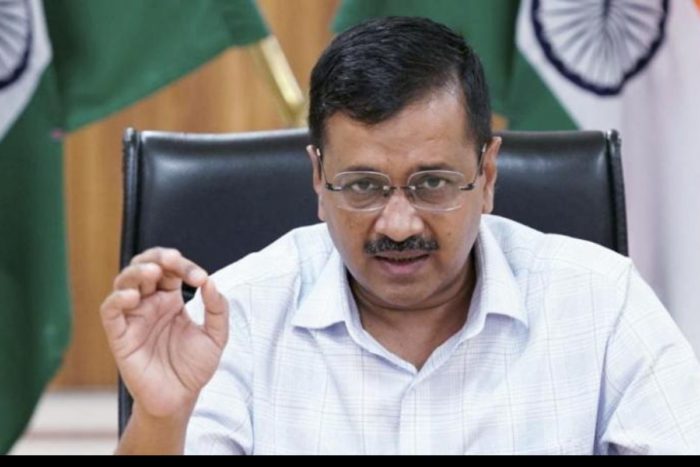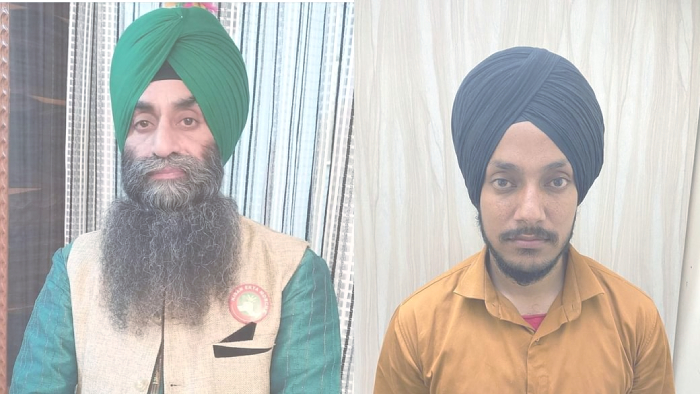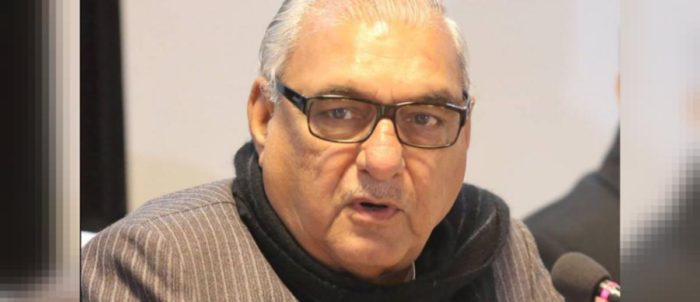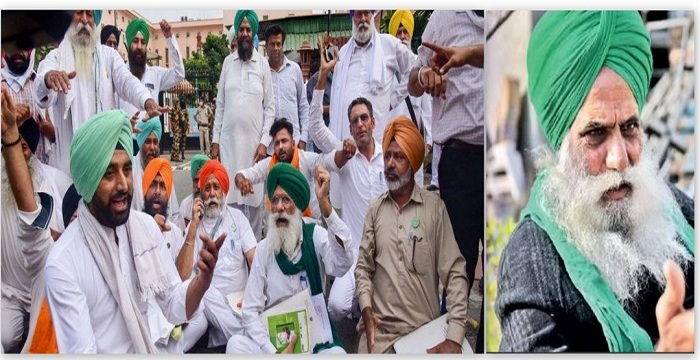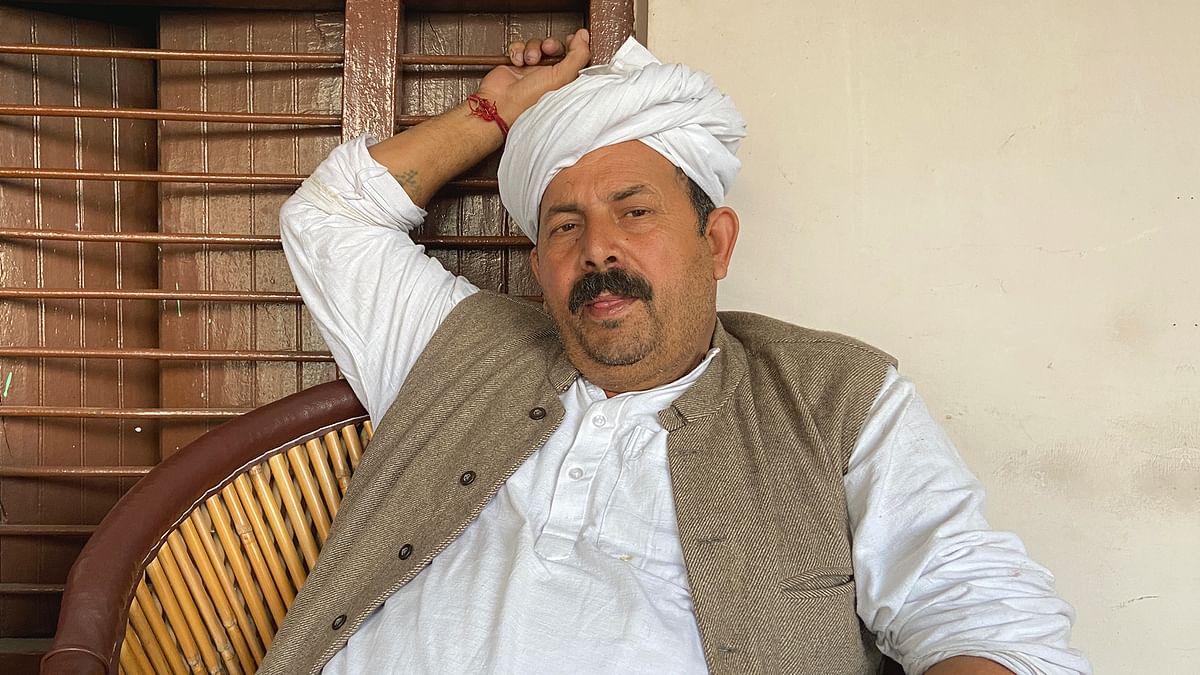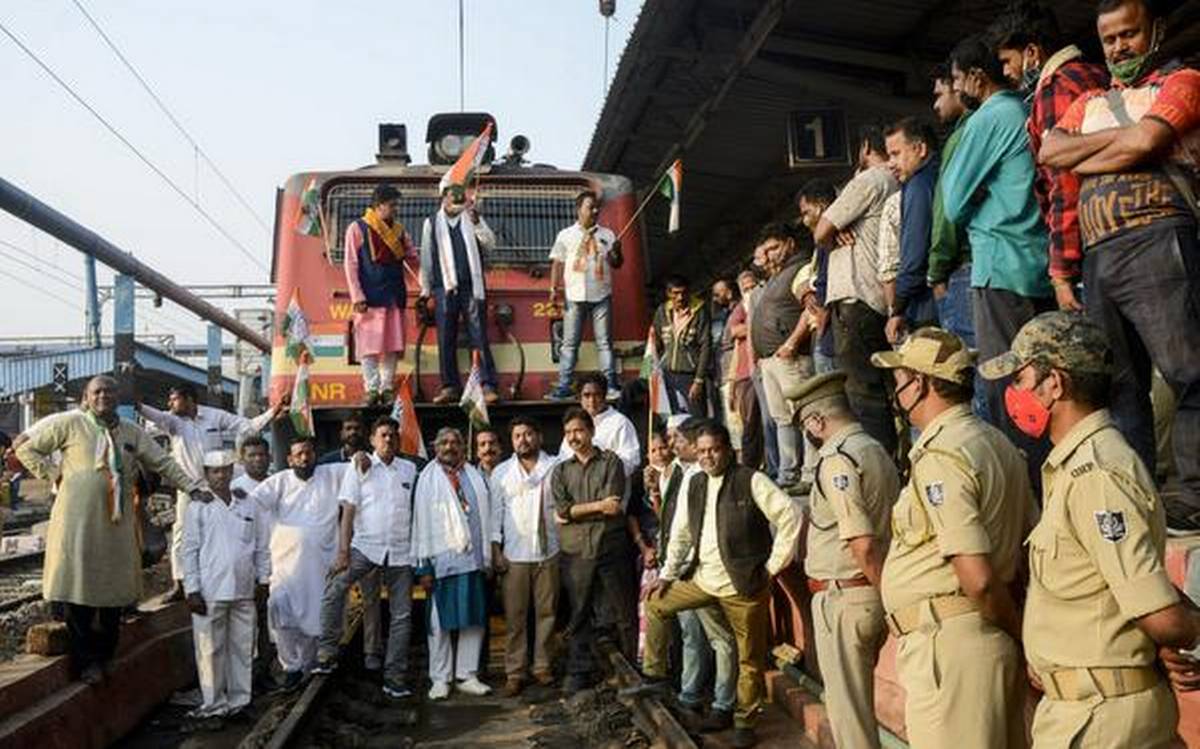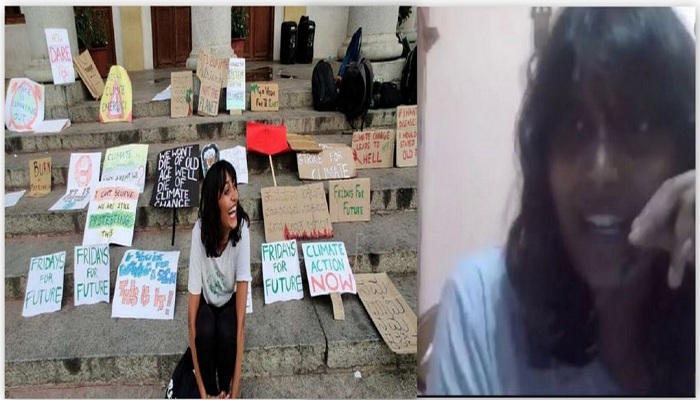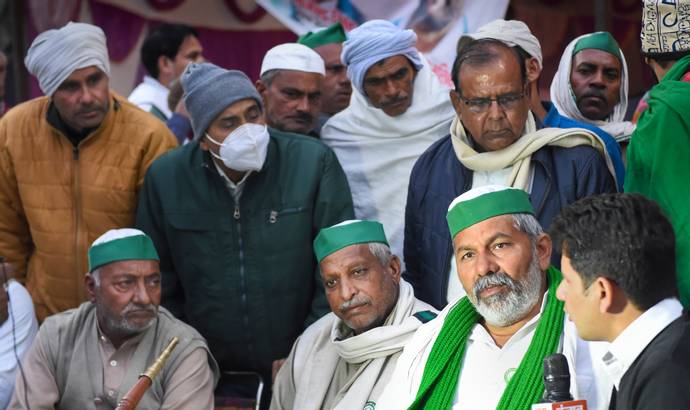Delhi Chief Minister Arvind Kejriwal took a swipe at the BJP over farmers’ issues. Speaking at Meerut’s Kissan Mahapanchayat, he even called top BJP leaders, including his Uttar Pradesh (UP) counterpart, Yogi Adityanath, liars over their claims on minimum support price (MSP).
Providing supporting and powering the farmers’ protests in Uttar Pradesh, he lashed out at the Centre’s indifference towards the farmers who have been protesting for the last three months at Delhi’s borders, Singhu, Tikri, and Ghaziabad, against the three Farm-Laws. Addressing a ‘Kisan Mahapanchayat’ in UP’s Meerut, Kejriwal alleged that the January 26 violence at Red Fort was orchestrated by the BJP itself. Comparing the BJP to Britishers, he said that not even the colonisers had used water canons and lathis on farmers.
Taking a jibe at the Prime Minister’s recent speech in Parliament, in which he had reassured that the MSP system would stay, Mr. Kejriwal asked where in Uttar Pradesh MSP was paid. Mr. Kejriwal used that statement to attack the entire BJP leadership. Chief Minister Adityanath was in his firing line as well.
Also See: An overview of farmers’ protests- role of Charan Singh
“Their minister keeps saying that MSP was there and will remain. But you tell me if farmers get MSP in any of the mandis. They lie day and night. Yogi Adityanath lies,” Kejriwal said in Meerut.
He zeroed-in on UP’s sugarcane farmers to drive home his point saying that they had not been getting their dues up to two years. The cumulative backlog, he said, was Rs18,000 crore. He sought to know what Mr. Adityanath’s helplessness was in not fixing the sugar-mill owners’ problem.
“Yogi Adityanath, shame on your government if you are incapable of ensuring payments sugarcane farmers,” Mr. Kejriwal said.
He said that the problems can be fixed only if the government has the right intent and that funds would not the issue then. He cited his own government’s example in Delhi with regards to power supply and bills in the city.
“If you elect a government with the right intent, farmers would get their payment even before they reach home after depositing their produce in the mills,” he said. The Delhi Chief Minister also took up the issue of galloping fuel prices, reiterating that a government with the right intent could bring down petrol and diesel rates.
“I would like to say at the end that this is a national movement, a pure movement. I am not doing any favours. I will tell you that the government will ultimately have to bow before you,” he told the Mahapanchayat.
Also See: Overview of the Farmers’ unions in the protests
Proclaiming that the Centre’s Farm Laws were a ‘death warrant’ for farmers, Kejriwal said that farmers will become labourers in their own fields. Highlighting AAP’s involvement in the farmers’ protests, Kejriwal said that his government had supplied water, food, medical supplies, toilets, and other facilities. “Centre’s three farm laws are death warrant for farmers. The government wants to take away their lands and give them to 3-4 capitalists. Farmers will become labourers in their own fields, that is why it is do or die situation for farmers,” he said.
He added, “We have participated in the protest from the beginning. Centre’s plan was to stop them but they reached Delhi border. Centre had sent me a file, and it was written that Delhi’s 9 large stadiums were to be turned into jails, but I have that power, they had to send the file. We have been helping them with water, free wifi, toilets.” Remembering BKU leader Rakesh Tikait‘s breakdown at Ghazipur, he said that it was unbelievable sight saying, “On January 28 night, what we saw was unbelievable. Rakesh Tikait-ji was sitting at Ghazipur border, he was doing it for farmers and govt sent their police goons, he got emotional and cried. We could not see it.”
AAP had voted against the Farm Bills in the Parliament with MP Sanjay Singh storming the well and manhandling a marshal by grabbing his neck when he tried to stop his path to the well resulting in his suspension from the Rajya Sabha for the entire monsoon session. Later, Delhi CM Arvind Kejriwal and all AAP MLAs tore copies of the Centre’s Farm Laws in the Delhi Assembly, before passing a resolution against the farm laws. Moreover, both Kejriwal and Sanjay Singh have met Tikait and addressed Kisan Mahapanchayats in UP. Delhi government has also supplied free water, wi-fi, medical facilities, toilets, food, and legal aid to the protesting farmers at Delhi borders. Talks between farmers and Centre have stalled after government suggested stalling the laws for 1.5 years, while farmers have remained determined on repealing of the laws.


